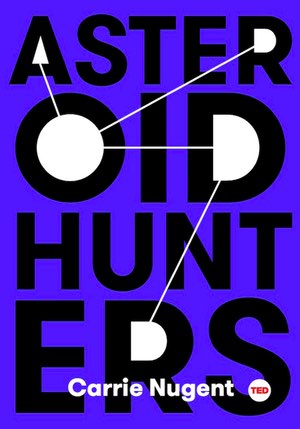Review: Asteroid Huntersby Jeff Foust
|
| “Asteroid hunting is our responsibility to the rest of the planet. We are the only species able to understand calculus or build telescopes; the poor dinosaurs didn’t stand a chance, but we do,” Nugent writes. |
The book’s publisher, TED Books, has released one other space book recently, about human missions to, and settlement of, Mars (see “Review: How We’ll Live on Mars”, The Space Review, July 20, 2015). That book was a disappointment: it oversimplified the challenges of sending people to Mars, and assumed people would be landing on Mars in just a decade, thanks, of course, to SpaceX. One commenter described the book as an “article of faith” rather than a rigorous, critical look at one of the central issues of spaceflight today.
Fortunately, you can’t tell a book by its publisher. Asteroid Hunters is written by Carrie Nugent, a postdoc at Caltech who is a self-described “asteroid hunter”: she works on the NEOWISE mission, a space telescope repurposed to search for asteroids at infrared wavelengths. She’s able to clearly and accurately communicate the issues regarding the search for asteroids, without overhyping them.
The book is a mix of science and history: the former covering what near Earth asteroids are and how astronomers look for them, and the latter covering the discovery of the first asteroids more than two centuries ago and how the search for asteroids has evolved since then. The final chapters discuss some of the issues associated with detecting and mitigating a potential impact, including an interview with NASA’s planetary defense officer, Lindley Johnson.
Many topics go uncovered in this brief book: there’s little discussion of the science of asteroids themselves, nor their potential use as space resources. The book is focused on the risk of asteroid impacts and what’s been done to monitor them, and in that respect does a fine job.
“Asteroid hunting is our responsibility to the rest of the planet. We are the only species able to understand calculus or build telescopes; the poor dinosaurs didn’t stand a chance, but we do,” she writes early on in the book. Asteroid impacts, she argues, are the one natural disaster we know how to prevent, if given enough advance warning of a potential impact. If the risk of an impact keeps you up at night, perhaps in part because of the media attention close approaches like the one this month receive, Asteroid Hunters will help you rest easier knowing that Nugent and other astronomers are keeping their eyes on the skies.
